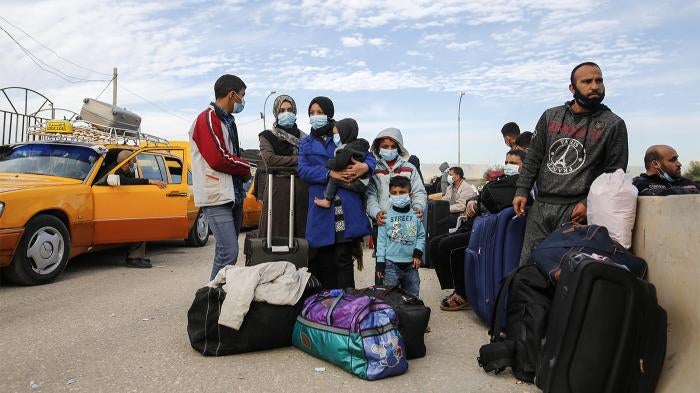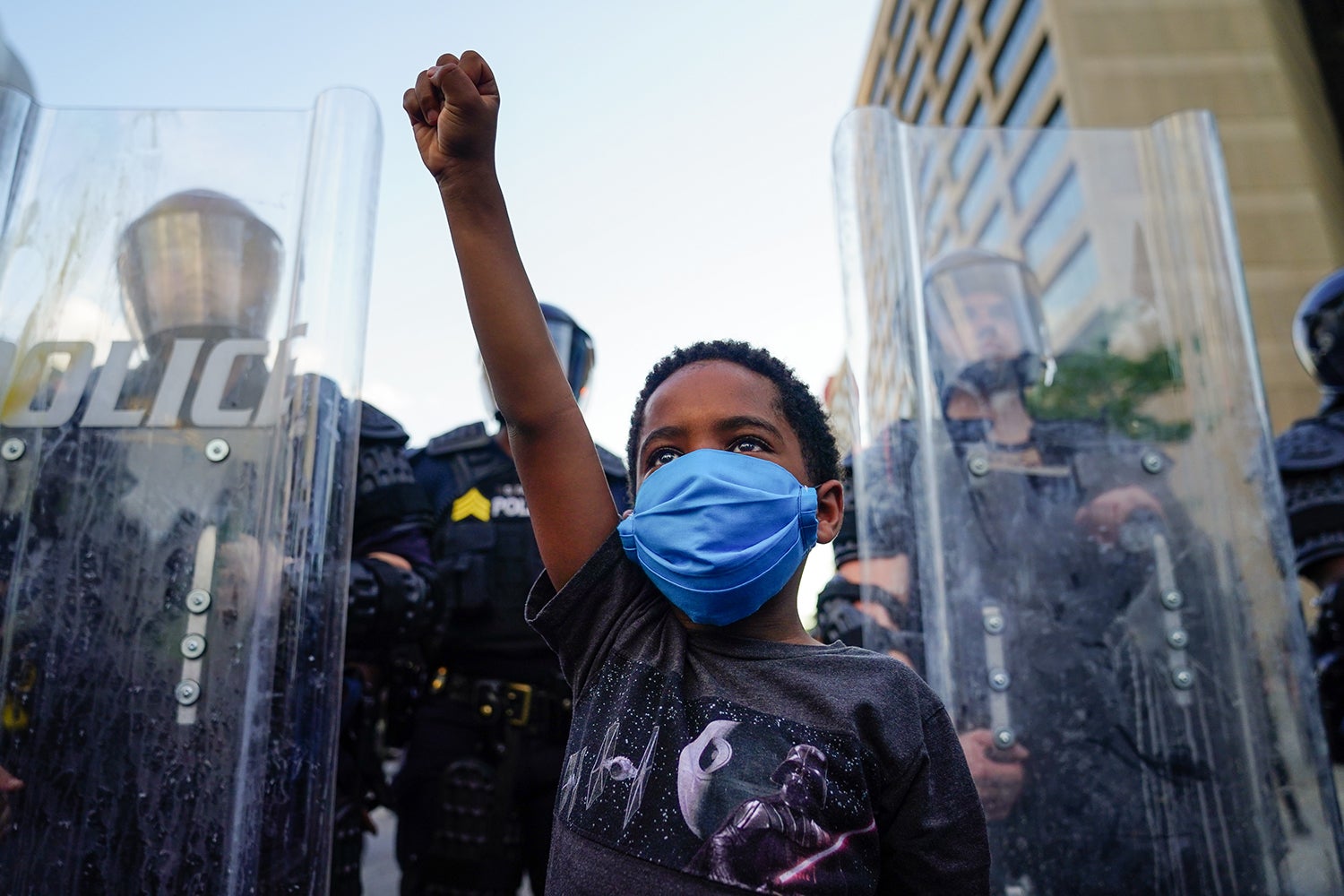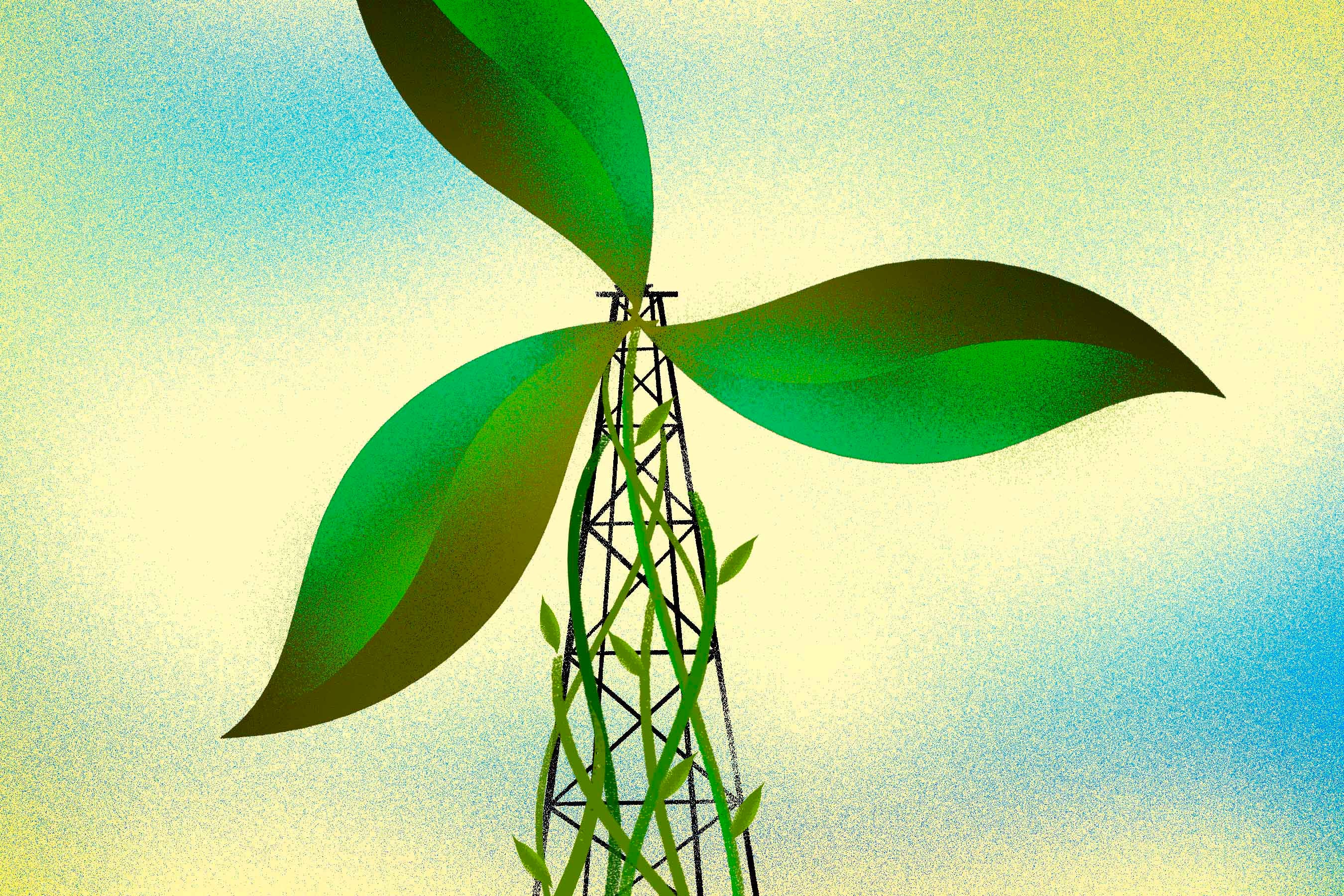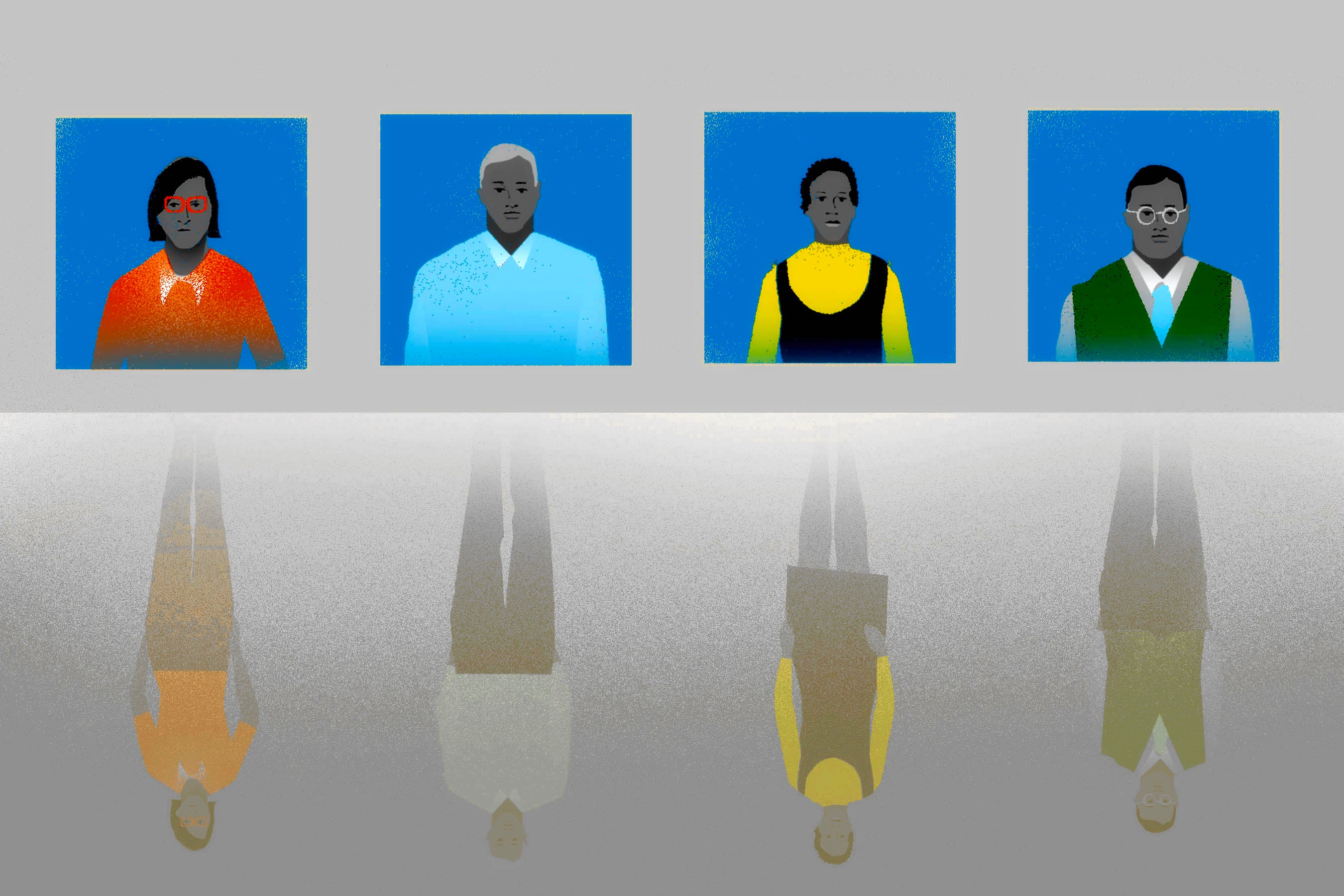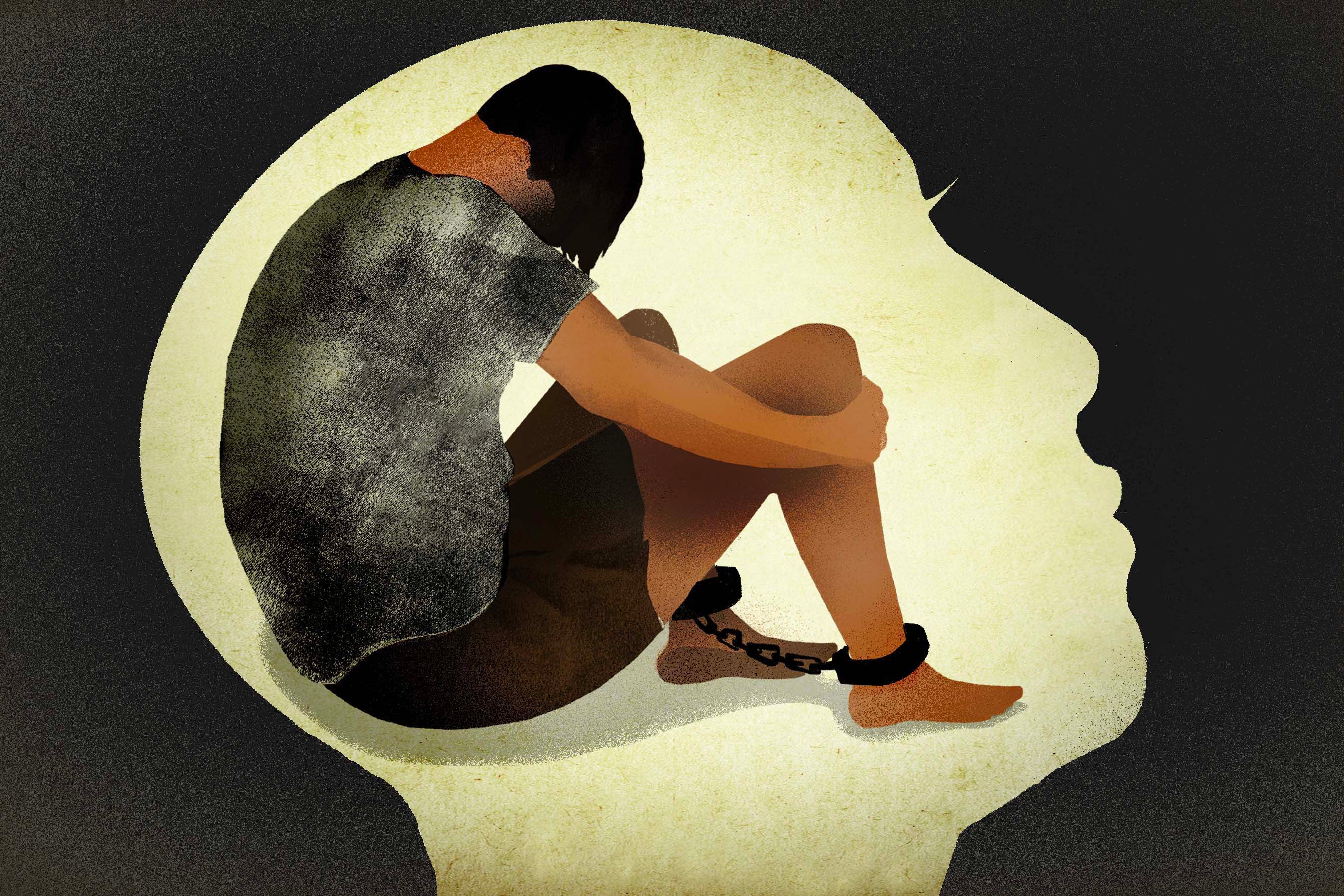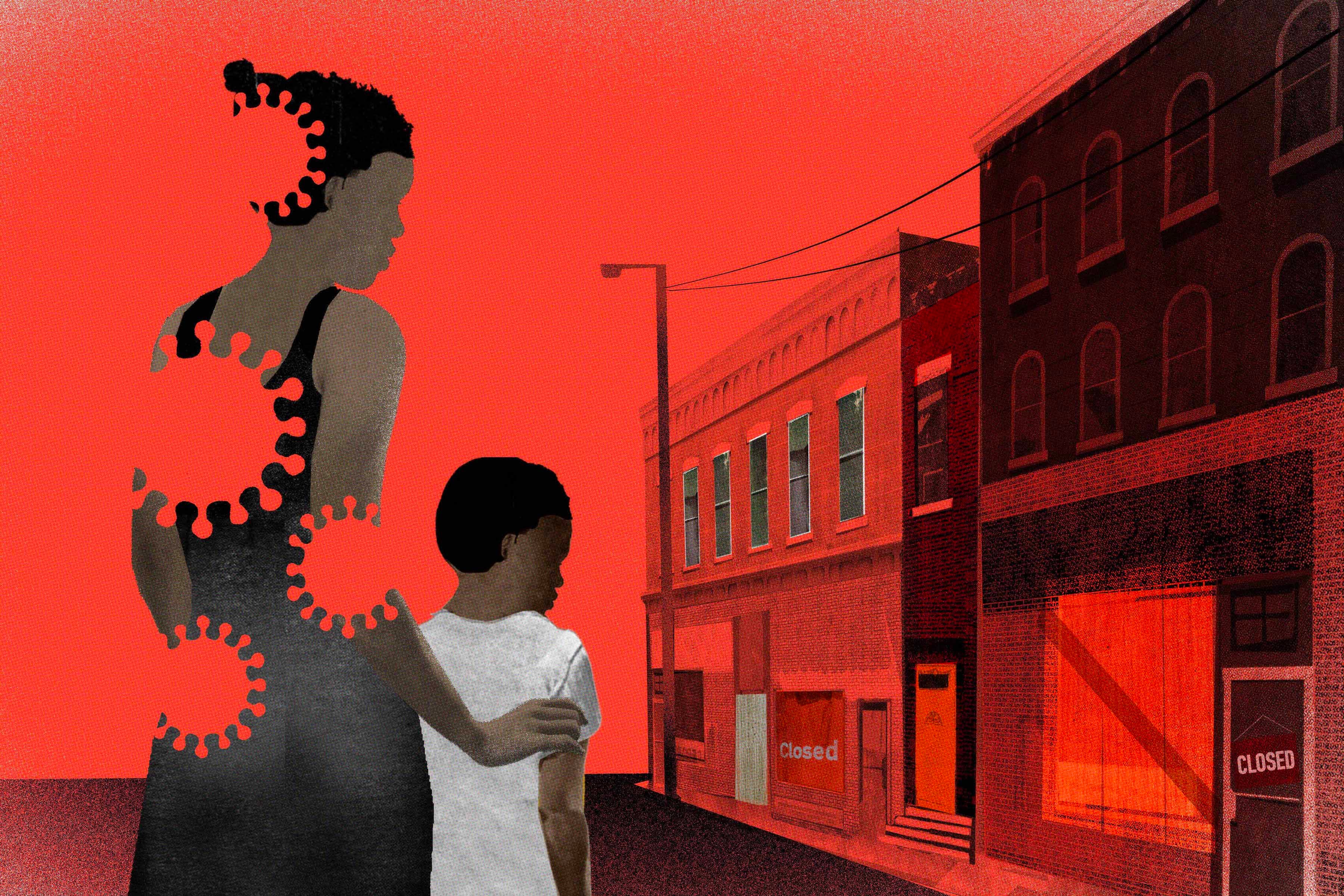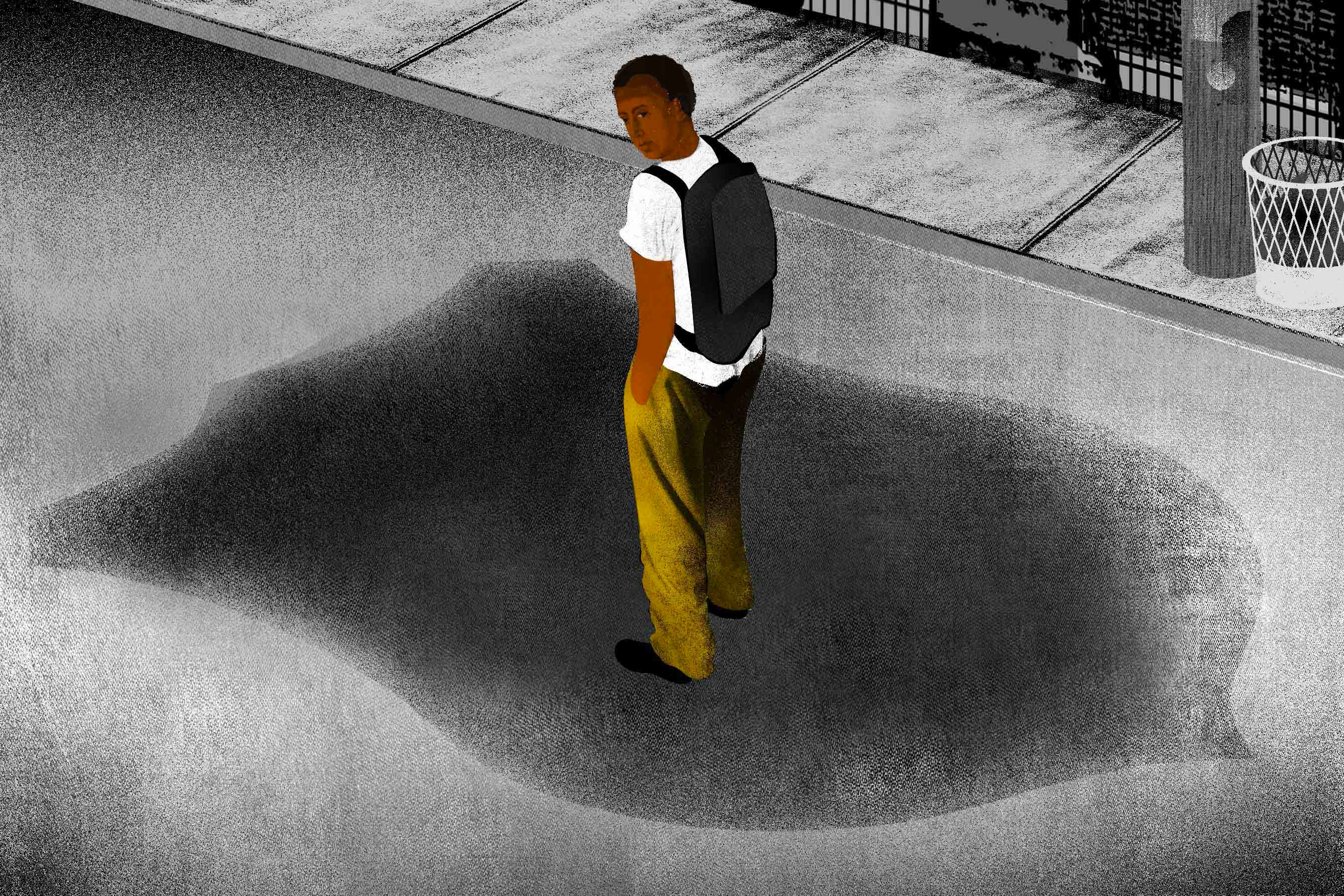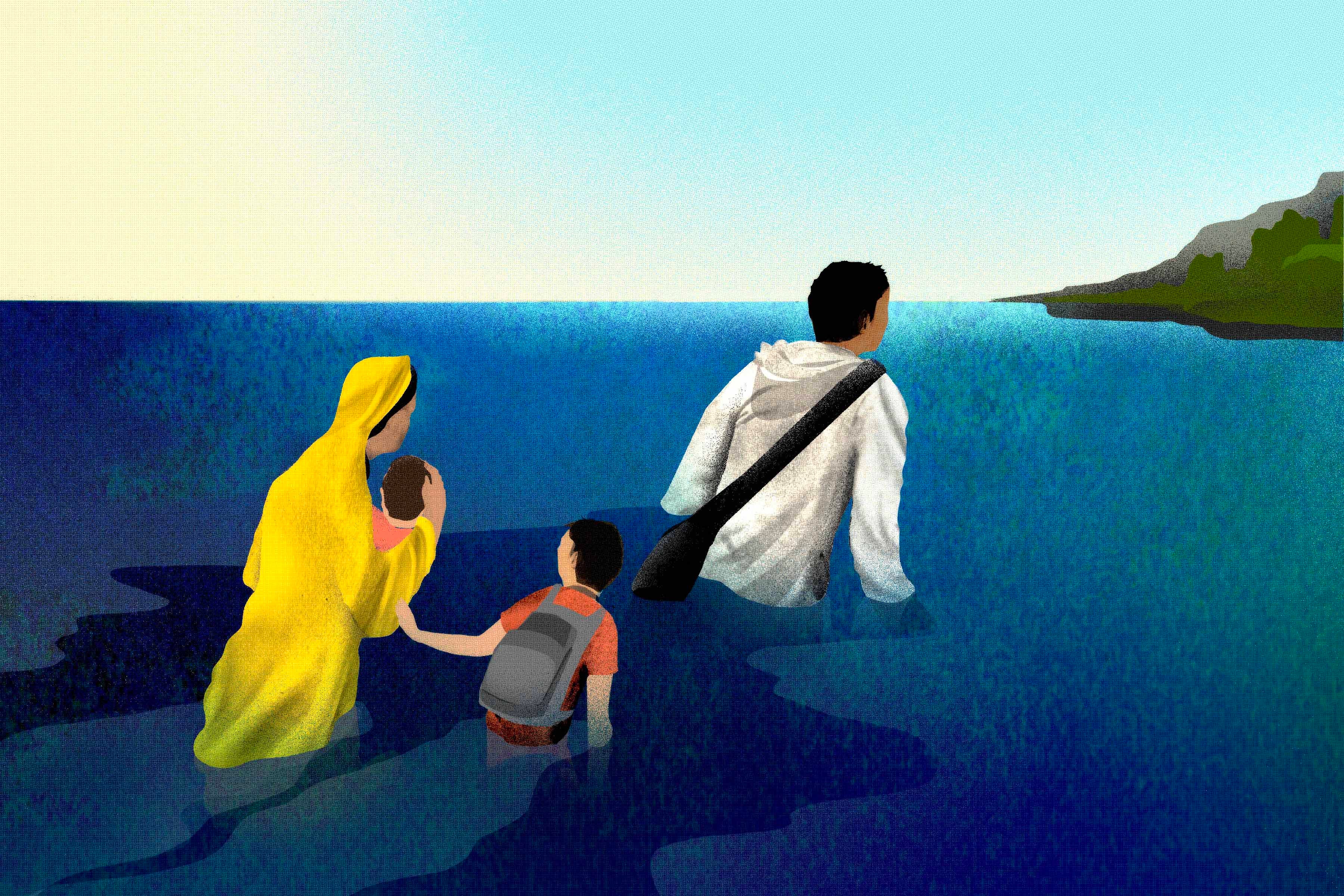Israeli authorities in 2020 systematically repressed and discriminated against Palestinians in ways that far exceeded the security justifications they often provided.
For a 13th consecutive year, the government enforced a generalized travel ban on Palestinians in the occupied Gaza Strip and sharply restricted the entry and exit of goods. These restrictions, not based on an individualized assessment of security risk, robbed with rare exceptions the 2 million Palestinians living there of their right to freedom of movement, limited their access to electricity and water, and devastated the economy. Eighty percent of Gaza’s residents depend on humanitarian aid.
Israeli authorities also facilitated the further transfer of Israeli citizens into settlements in the occupied West Bank, a war crime. The Israeli group Peace Now said that Israeli officials in 2020 advanced plans for more housing units in West Bank settlements, 12,159 as of October 15, more than in any other year since it began tracking these statistics in 2012.
According to the UN Office of Coordination for Humanitarian Affairs (OCHA), as of October 19, 2020, Israeli authorities demolished 568 Palestinian homes and other structures in the West Bank this year, including in East Jerusalem, displacing 759 people. Most buildings were demolished for lacking Israeli building permits, which are virtually impossible to obtain. As the Covid-19 pandemic spread between March and August, Israel averaged its highest home demolition rate in four years, OCHA found. On November 3, Israeli authorities razed the homes of most residents of the Palestinian community of Khirbet Humsah in the Jordan Valley for being in an area it designated as a “firing zone,” displacing 73 people, 41 of them children.
The coalition agreement between the Likud and Blue and White parties that led to the formation of an Israeli government in May, after three rounds of elections in the preceding year, established a process to bring annexation of additional parts of the West Bank for approval. Prime Minister Benjamin Netanyahu said in August that Israel would delay the move following an agreement to normalize relations with the United Arab Emirates, but that “there is no change to my plan to extend sovereignty” over the West Bank.
Both the Fatah-dominated Palestinian Authority (PA) in the West Bank and Hamas authorities in Gaza detained opponents and critics for their peaceful expression and tortured some in their custody. The Palestinian statutory watchdog, Independent Commission for Human Rights (ICHR), received 269 complaints of arbitrary arrests, 147 against the PA and 122 by Hamas; 90 complaints of torture and ill-treatment, 40 against the PA and 50 against Hamas, and 62 complaints against the PA of detention without trial or charge pursuant to orders from a regional governor between January and September 2020. The number of complaints decreased compared to previous years, which the ICHR attributes primarily to the fewer prison visits it conducted amid the pandemic.
Gaza Strip
Although fighting between Israel and Palestinian armed groups decreased compared to previous years, Israeli authorities maintained their closure of Gaza, alongside restrictions Egypt maintains on its border. Palestinian armed groups, as of October 21, fired 187 unguided rockets or mortar shells towards Israeli population centers in 2020, according to the Meir Amit Intelligence and Terrorism Information Center, inherently indiscriminate attacks that amount to war crimes.
Incendiary balloons launched into Israel by Palestinians in Gaza prompted Israeli authorities in August in retaliation to limit the entry into Gaza of goods, including food and medicine, to block access to Gaza’s territorial waters for Palestinian fishermen and to slash fuel imports to Gaza’s power plant, further reducing the already limited supply of electricity for almost three weeks. These measures, targeting Gaza’s general civilian population, amount to unlawful collective punishment.
In August, Gaza recorded its first cases of community transmission of coronavirus. Hamas authorities, which since March had required returning residents to spend 21 days in quarantine at centers they oversee, imposed a 14-day lockdown and other restrictive measures. As of October 19, Gaza’s Health Ministry had recorded 4,722 Covid-19 cases and 28 deaths, most of them since August.
Israeli Closure
Israel restricted the ability of most Gaza residents to travel through the Erez Crossing, the sole passenger crossing from Gaza into Israel through which Palestinians travel to the West Bank and abroad. A generalized travel ban applies to all Palestinians except those whom Israeli authorities deem as presenting “exceptional humanitarian circumstances,” mostly those needing vital medical treatment and their companions, as well as prominent business people.
During January and February, an average of 778 Palestinians in Gaza exited via Erez each day, a fraction of the daily average of more than 24,000 before the beginning of the second Intifada in September 2000, according to the Israeli rights group, Gisha. After Israel tightened the closure amid the pandemic, that figure plummeted between April and September to about nine people per day.
In May, the PA suspended security and administrative coordination with Israel, including the issuance of travel permits, in response to Israel’s annexation plans. This move left Gaza residents with no clear way to apply for permits, since Israeli authorities do not have a formal physical presence inside Gaza and did not create alternative mechanisms to accept applications directly. Several organizations in June began applying on behalf of Palestinians with scheduled appointments for urgent medical care outside Gaza and the World Health Organization (WHO) took on the coordination role in September. According to data received by the WHO, Israel denied or failed to respond in a timely manner to 54 percent of such applications in June. In November, the PA said that it would resume security and administrative coordination with Israel.
Gaza’s exports between January and September, mostly destined for the West Bank and Israel, averaged 256 truckloads per month, compared to the monthly average of 1,064 truckloads prior to the June 2007 tightening of the closure, according to Gisha. Israel also sharply restricted and often prohibited the entry of what they deem “dual-use” materials, items that could be used for military purposes. The list included X-ray and communications equipment, construction materials, spare parts and batteries for assistive devices used by people with disabilities, and other vital civilian items.
Families in Gaza on average received slightly more than 12 hours of electricity a day during the first nine months of 2020, according to OCHA. Chronic prolonged power outages encumber everyday life, in particular for people with disabilities who rely on light to communicate using sign language or equipment powered by electricity, such as elevators or electric wheelchairs, to move. More than 96 percent of groundwater in Gaza is “unfit for human consumption,” OCHA found. According to the WHO, 47 percent of what it deems to be “essential” medicines were at zero stock level (less than one month's supply) at Gaza’s Central Drug Store at the end of September.
Egypt also sharply restricted the movement of people and goods at its Rafah crossing with Gaza, including restricting entry to those who do not have a Palestinian ID because Israel did not include them in the population registry they control. In the first nine months of 2020, an average of 4,767 Palestinians crossed monthly in both directions, less than the monthly average of 12,172 in 2019 and over 40,000 before the 2013 military coup in Egypt, according to Gisha.
Hamas and Palestinian Armed Groups in Gaza
Hamas authorities provided no information about two Israeli civilians with psychosocial disabilities, Avera Mangistu and Hisham al-Sayed, whom they have apparently held in violation of international law for more than five years after they entered Gaza.
In April, Hamas authorities detained seven activists for participating in a video chat where they answered questions from Israeli civilians about life in Gaza. Two were detained for more than six months and three were convicted under military law of “weakening the revolutionary spirit.”
Hamas authorities carried out no executions in 2020; they had carried out 25, following trials marred with due process violations, since they took control in Gaza in June 2007. Courts in Gaza had, as of November 2, sentenced 145 people to death in that time, according to the Gaza-based Palestinian Center for Human Rights.
A British Mandate-era law still in force in Gaza punishes “unnatural intercourse” of a sexual nature, understood to include same-sex relationships, with up to 10 years in prison, although Human Rights Watch has not documented detentions for same-sex conduct.
West Bank
Israeli Use of Force & Detentions
In the West Bank, including East Jerusalem, Israeli security forces killed 20 Palestinians and wounded at least 2,001 as of October 5, according to OCHA, including those alleged to have attacked Israelis, but also those uninvolved in violence.
On May 30, Israeli border police in Jerusalem’s Old City fatally shot an unarmed 32-year-old Palestinian man with autism, Eyad al-Hallaq, after he reportedly fled when they asked him to stop. According to what an officer on the scene reportedly told Israeli investigators, police shot him in a “closed space” where he did not “endanger” anyone. In October, authorities indicated that they will likely charge the officer who shot al-Hallaq with reckless homicide, pending a pretrial hearing.
On June 23, border police shot and killed, apparently unlawfully, 26-year-old Ahmed Erekat after his car crashed into a checkpoint and he exited the vehicle in circumstances where he did not appear to pose an imminent threat to life. Authorities characterized the incident as a car-ramming attack; his family said it was an accident.
Israeli authorities have rarely held accountable security forces who used excessive force or settlers who attacked Palestinians.
Settler violence against Palestinians during the first five months of 2020 remained at 2019 levels, a marked increase from prior years, OCHA found. Settlers killed one Palestinian civilian, wounded 103, and caused property damage in 136 incidents as of October 5, according to OCHA.
Palestinian attackers killed one Israeli soldier and wounded at least 28 Israeli soldiers and civilians in the West Bank, as of September 22.
Israeli authorities in September said they would continue withholding the bodies of Palestinians killed in what they consider security incidents primarily as leverage to secure Hamas’s release of the bodies of two Israeli soldiers presumed killed in 2014 hostilities. Israel held, as of September, the bodies of 67 Palestinians killed since 2015, according to the Jerusalem Legal Aid and Human Rights Center.
In the East Jerusalem neighborhood of Issawiya, Israeli forces arrested 850 Palestinians between April 2019 and April 2020, according to the Israeli rights group, B’Tselem, as part of an “ongoing campaign of abuse” against its residents.
In April, Israeli police shut down a coronavirus testing center set up by residents in the East Jerusalem neighborhood of Silwan on the grounds that it operated with PA assistance.
Israeli authorities closely monitor online speech by Palestinians, in part relying on predictive algorithms to determine whom to target, and have detained Palestinians based on social media posts and other expressive activity.
As of August 31, according to Israeli Prison Services figures, Israel held 4,207 Palestinians in custody for “security” offenses, including 153 children, many for throwing stones, and 355 in administrative detention without formal charges or trial and based on secret evidence.
While applying Israeli civil law to settlers, Israeli authorities govern West Bank Palestinians, excluding Jerusalem residents, under harsh military law. In so doing, they deny them basic due process and try them in military courts with a near-100 percent conviction rate. Israel incarcerates many Palestinians from the OPT inside Israel, complicating family visits and violating international humanitarian law’s prohibition against their transfer outside occupied territory.
Settlements & Home Demolitions
Israel allocated additional confiscated Palestinian land to unlawful settlements and provided security, infrastructure, and services for more than 647,000 settlers residing in the West Bank, including East Jerusalem.
In June, Israel’s Supreme Court struck down a law allowing authorities to retroactively expropriate land on which settlements had been built but that Israel acknowledged to be privately owned by Palestinians. In its justification, however, the court cited “less harmful tools” that could have the same effect, including a military order that upholds land deals when authorities reasonably believed at the time of sale that the land was not privately owned, effectively approving the unlawful expropriations.
Jerusalem courts in several cases ordered the eviction of Palestinian families from homes in which they had lived for decades in the East Jerusalem neighborhood of Silwan largely based on discriminatory laws that favor claims that the land belonged to Jewish owners before 1948 or that allow the state to take over land as “absentee property.”
The difficulty in obtaining Israeli building permits in East Jerusalem and the 60 percent of the West Bank under Israel’s exclusive control (Area C) has driven Palestinians to construct housing, schools, and business structures that are at constant risk of demolition or confiscation for being unauthorized. OCHA considered, as of April 2020, 46 Palestinian West Bank communities to be at “high risk of forcible transfer” due to coercive Israeli policies. International law prohibits an occupying power from destroying property unless “absolutely necessary” for “military operations.”
Freedom of Movement for Palestinians
Israel continued to enforce its permit regime requiring Palestinian ID holders with rare exceptions to apply for time-limited permits from the Israeli army to enter large parts of the West Bank, including East Jerusalem. B’Tselem describes this as “an arbitrary, entirely non-transparent bureaucratic system” where “many applications are denied without explanation, with no real avenue for appeal.” Israeli authorities, as of June, maintained nearly 600 checkpoints and other permanent obstacles within the West Bank, in addition to nearly 1,500 ad-hoc “flying” checkpoints erected between April 2019 and March 2020, according to OCHA. Israeli forces routinely turn away or humiliate and delay Palestinians at checkpoints without explanation.
The separation barrier, which Israel said it built for security reasons but 85 percent of which falls within the West Bank rather than along the Green Line separating Israeli from Palestinian territory, cuts off thousands of Palestinians from their agricultural lands. It also isolates 11,000 Palestinians who live on the western side of the barrier but are not allowed to travel to Israel and whose ability to cross the barrier to access their property and basic services is highly restricted.
The Palestinian Authority in the West Bank
As of October 21, the PA reported 43,308 Covid-19 cases and 399 deaths since the outbreak began in the West Bank, not including East Jerusalem. While at times imposing restrictions across the parts of the West Bank where it manages affairs, it has largely relied on localized lockdowns of areas that experience a surge in cases.
Prime Minister Mohammad Shtayyeh pledged in July 2019 to end arbitrary arrests. In June, PA forces detained journalist Sami al-Sai for three weeks over suspicions that he administered a Facebook page that had posted information about PA corruption. PA forces in July arrested about 20 activists in Ramallah heading to a protest about PA corruption, detaining them for more than a week, and prosecuting them on charges of gathering illegally and violating restrictive Covid-19 measures.
PA personal status laws discriminated against women, including in relation to marriage, divorce, and decisions relating to custody of children and inheritance. Women’s rights groups documented an increase in reports of domestic violence during Covid-19 lockdown restrictions. However, Palestine has no comprehensive domestic violence law. The PA is considering a draft family protection law, but women’s rights groups have raised concern that it does not go far enough to prevent abuse and protect survivors.
Israel
Israel had registered 306,649 Covid-19 cases and 2,278 deaths, including in East Jerusalem and West Bank settlements, as of October 21. Israel instituted lockdowns between late March and early May, and again between late September and mid-October. To track Covid-19, Israeli authorities authorized Shin Bet, Israel’s internal security service, to collect from telecommunications providers, beginning in March, vast amounts of location-tracking data from the cellphones of ordinary Israelis without their consent. The Knesset in July authorized the surveillance for six months, following an Israeli Supreme Court ruling in April that the government must bring the program under legislation.
In June, the Knesset renewed a temporary order in place since 2003 that bars, with few exceptions, granting long-term legal status or residency inside Israel to Palestinians from the West Bank and Gaza who marry Israeli citizens or residents, in many cases forcing the separation of families.
Thousands of Israelis participated in weekly demonstrations beginning in June, primarily against the government’s handling of Covid-19 and corruption charges against Prime Minister Netanyahu. Israeli police forcibly dispersed several demonstrations and beat and arrested scores of protesters. The Israeli group Human Rights Defenders Fund said that between July 14 and 26 in Jerusalem alone it provided legal counsel to more than 150 demonstrators who had been detained.
Israeli authorities continued to systematically deny asylum claims of the roughly 32,000 Eritrean and Sudanese asylum seekers in the country. To pressure them to leave, the government tries to make their lives “miserable,” in the words of Israel’s interior minister in 2012, through restrictions on movement, work permits, and access to health care. The Supreme Court in April struck down a law that permitted confiscation of a portion of their salaries.
Key International Actors
The United States in January presented a plan that purports to offer a two-state solution but envisions permanent Israeli domination over large swaths of the West Bank and formal annexation of settlements, the Jordan Valley, and other parts of Area C, while setting conditions that would make the realization of a Palestinian state nearly impossible. In June, members of the US Congress raised concerns about annexation in letters to Prime Minister Netanyahu and US Secretary of State Michael Pompeo.
In response to the US plan, 27 European Union member states, including Germany and France, called for ensuring equal rights for Palestinians and Israelis. Over the year, the EU repeatedly urged Israel to abandon annexation plans and halt settlement construction, highlighting their illegality under international humanitarian law; however, strong divisions among EU member states have so far frustrated attempts to adopt punitive EU measures in response to Israel’s persistent and serious violations of international humanitarian law.
In February, the Office of UN High Commissioner for Human Rights released the long-awaited database of businesses that have enabled or profited from settlements, listing 112 businesses.
The International Criminal Court (ICC) prosecutor’s office concluded its preliminary examination of the Palestine situation in December 2019 and determined that all the necessary criteria to proceed with a formal investigation of alleged serious crimes by Israelis and Palestinians had been met. However, it requested guidance from the court’s judges on the ICC’s territorial jurisdiction before commencing a probe. At time of writing, a decision was pending.
